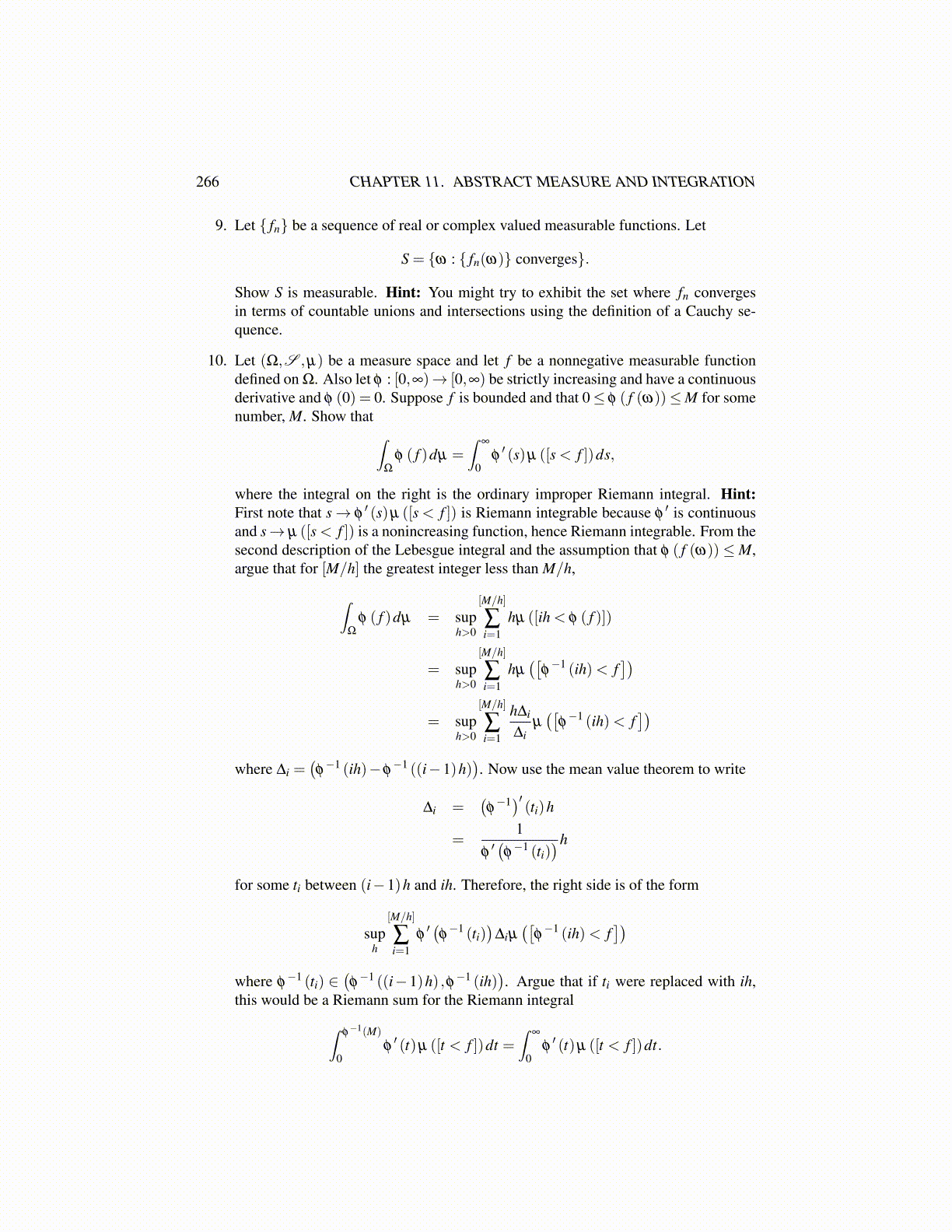
266 CHAPTER 11. ABSTRACT MEASURE AND INTEGRATION
9. Let { fn} be a sequence of real or complex valued measurable functions. Let
S = {ω : { fn(ω)} converges}.
Show S is measurable. Hint: You might try to exhibit the set where fn convergesin terms of countable unions and intersections using the definition of a Cauchy se-quence.
10. Let (Ω,S ,µ) be a measure space and let f be a nonnegative measurable functiondefined on Ω. Also let φ : [0,∞)→ [0,∞) be strictly increasing and have a continuousderivative and φ (0) = 0. Suppose f is bounded and that 0≤ φ ( f (ω))≤M for somenumber, M. Show that ∫
Ω
φ ( f )dµ =∫
∞
0φ′ (s)µ ([s < f ])ds,
where the integral on the right is the ordinary improper Riemann integral. Hint:First note that s→ φ
′ (s)µ ([s < f ]) is Riemann integrable because φ′ is continuous
and s→ µ ([s < f ]) is a nonincreasing function, hence Riemann integrable. From thesecond description of the Lebesgue integral and the assumption that φ ( f (ω))≤M,argue that for [M/h] the greatest integer less than M/h,
∫Ω
φ ( f )dµ = suph>0
[M/h]
∑i=1
hµ ([ih < φ ( f )])
= suph>0
[M/h]
∑i=1
hµ([
φ−1 (ih)< f
])= sup
h>0
[M/h]
∑i=1
h∆i
∆iµ([
φ−1 (ih)< f
])where ∆i =
(φ−1 (ih)−φ
−1 ((i−1)h)). Now use the mean value theorem to write
∆i =(φ−1)′ (ti)h
=1
φ′ (
φ−1 (ti)
)h
for some ti between (i−1)h and ih. Therefore, the right side is of the form
suph
[M/h]
∑i=1
φ′ (
φ−1 (ti)
)∆iµ
([φ−1 (ih)< f
])where φ
−1 (ti) ∈(φ−1 ((i−1)h) ,φ−1 (ih)
). Argue that if ti were replaced with ih,
this would be a Riemann sum for the Riemann integral∫φ−1(M)
0φ′ (t)µ ([t < f ])dt =
∫∞
0φ′ (t)µ ([t < f ])dt.